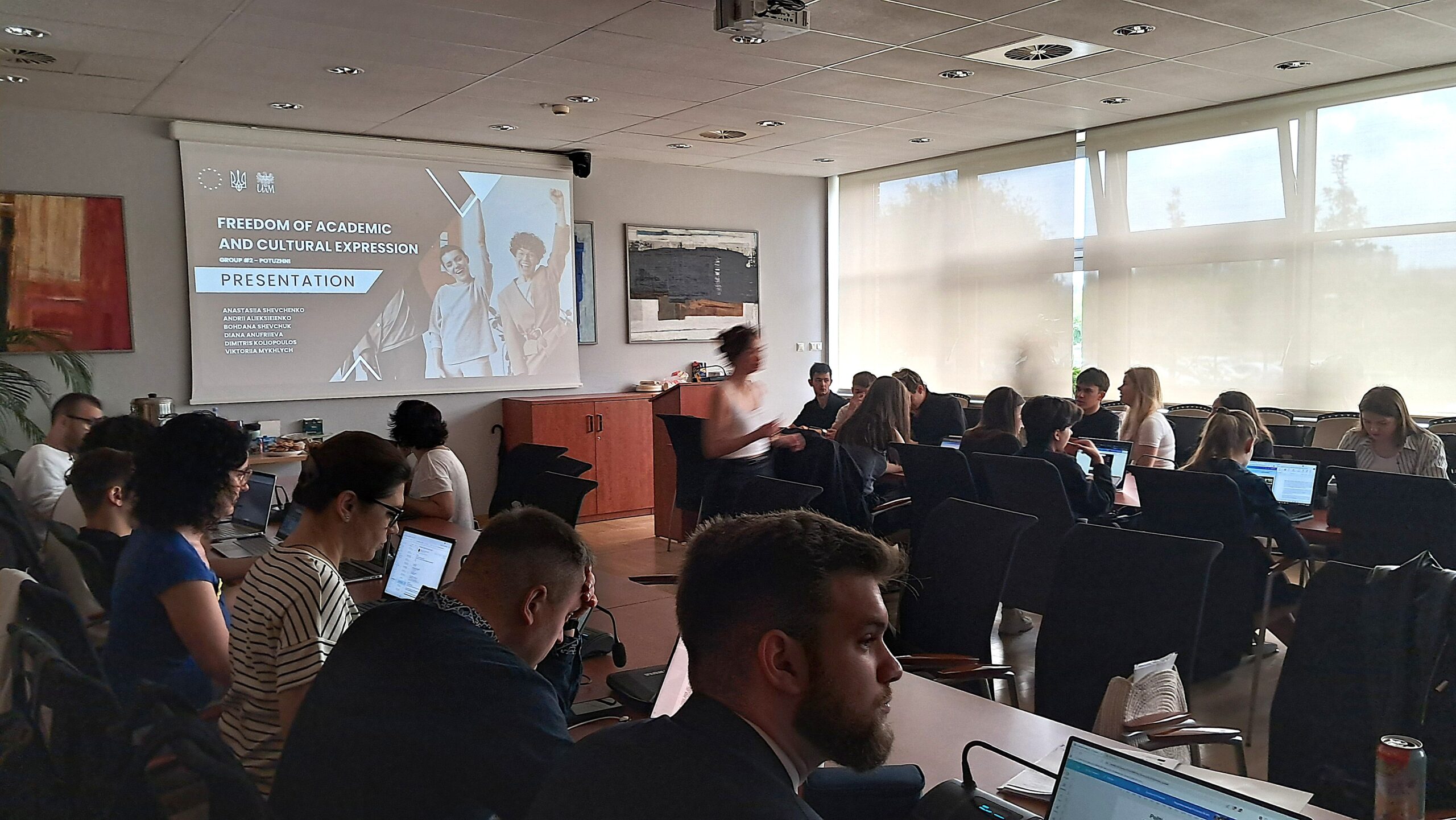Group 3: Freedom of Academic and Cultural Expression
A third group of international students at the Summer School took on the subject of freedom of expression:
How free are students, teachers, and cultural creators to express their views in academic and artistic spaces today?
Their project, Freedom of Academic and Cultural Expression, explored how universities either support or restrict this freedom — and what can be done to protect it. The group used their personal experiences, case studies, and student interviews to understand how freedom of expression operates (or fails to) across different national and institutional settings.
Team members:
Anastasiia Shevchenko – Adam Mickiewicz University
Andrii Alieksieienko – Adam Mickiewicz University
Bohdana Shevchuk – Adam Mickiewicz University
Diana Anufrieva – Sumy State University
Dimitris Koliopoulos – University of the Peloponnese
Viktoriia Mykhlych – International Humanitarian University
What does academic and cultural freedom really mean?
The group defined this freedom as the right to explore, create, and share ideas within educational and cultural contexts — including the ability to teach, research, publish, and participate in public or artistic expression without fear of institutional or political interference.
Their research raised concern about a global decline in both academic and cultural freedoms, especially in the face of polarisation, repression, and increased political sensitivity within universities.
Student Perspectives
The group also gathered first-hand insights through informal interviews and a student survey. While some respondents reported a supportive university culture, others spoke about a lack of openness, communication, or safe platforms for self-expression.
They asked:
- What improvements are needed in universities to protect academic and cultural expression?
- Have you personally faced limitations in expressing your views, identity, or interests?
Looking Forward
The group concluded that freedom of expression in academic and cultural settings must be actively supported, not just permitted.
- Their suggestions include:
Letting students shape expression policies, not just follow them
Encouraging dialogue rather than shutting down “controversial” topics
Recognising that cultural events are part of university life — not distractions from it
They plan to continue collecting student responses and expanding their project to include more countries and historical contexts.
Sοurces
Academic Freedom Index. (2024). https://academic-freedom-index.net

